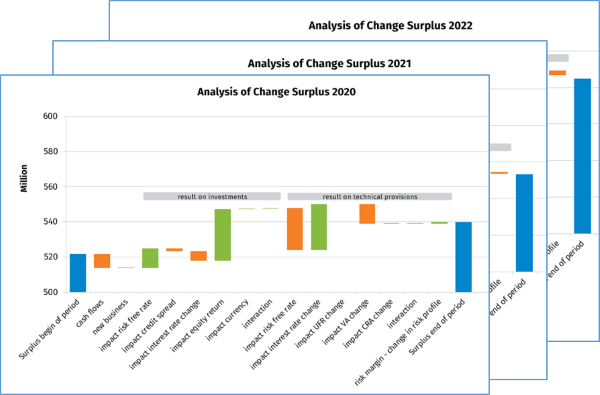Survey-based approaches dominate recent inflation forecasting literature. This article shows the results of a comparison between survey-based versus the Ortec Finance quantitative data-driven approaches for forecasting inflation. Based on an out-of-sample analysis across eight countries, we concluded that the Ortec Finance methodology outperforms survey-based inflation models. In particular for horizons of one year and longer.
Recent inflation forecasting literature
In recent inflation forecasting literature (e.g., Kozicki and Tinsley (2012), Faust & Wright (2013), we see a trend towards the usage of survey forecasts. This article shows the results of a comparison between the Ortec Finance quantitative data-driven approach to that of the Survey of Professional Forecasters (SPF-survey). In terms of forecast accuracy, this survey is amongst the best in recent literature, such as Faust and Wright (2013).
We also included other non-survey-based inflation forecasting models in our comparison, to place the results in perspective: the well-known UC-SV model by Stock and Watson (2007), two naïve benchmark models, AR (1) and a random walk. The UC-SV is a trend-based state-space model that shows good inflation forecasting performance, as seen in recent literature (Stock and Watson (2007), Faust and Wright (2013), Groen et al. (2013). As this model also uses a long-term trend, it is in some respect similar to the Ortec Finance frequency decomposition factor-based approach.
The quantitative data-driven Ortec Finance approach
The Ortec Finance scenario approach is based on frequency domain decomposition techniques. This approach decomposes time series into a long-term trend, a medium-term business cycle component, and a high-frequency monthly component. Forward-looking scenario projections for a wide range of macro-economic and financial benchmarks are subsequently created using dynamic factor models.
This methodology aims to capture co-movements in the economy with a few common factors (principal components). We use the same approach to forecast inflation. Additionally, the Ortec Finance scenarios include “expert opinions” to account for effects that data-driven models cannot naturally take into account, e.g., announced tax changes.
For this research, we use a simplified version of the Ortec Finance approach without expert opinions. This implies that the Ortec Finance model-based forecasts in the results below are purely model-driven without expert opinion.
Survey forecasts outperform on a short horizon, the Ortec Finance approach is superior on a 1-year-horizon
We carried out an ‘out-of-sample’ rolling window performance analysis in the period Q1 1990- Q4 2018 for the United States and seven other developed market countries (Canada, France, Germany, Japan, the Netherlands, Switzerland, and the United Kingdom). Figure 1 shows the results of the forecasting analysis.
Figure 1: Forecasting performance

Chart shows the performance of models relative to the Ortec Finance methodology. A negative number means that the OF-approach outperforms the model; a positive number means a model outperforms the OF-approach.
The SPF-survey outperforms all models on a 0-, 1- and 2-quarter-horizon. For a 1- and 2-year horizon, the Ortec Finance model performs the best. For all models, we found that their performance relative to the Ortec Finance methodology worsens as the forecasting horizon became longer.
Expert opinions are highly relevant for forecasting short-term inflation
We argue that the survey forecasts outperform the Ortec Finance approach (without expert opinions) on short horizons since the survey uses recent information in a better way. Survey participants can take relevant events and news into account, whereas the Ortec Finance approach (as it is implemented in this research) relies on officially published data. The benefit of this advantage quickly dies out; however, as for the 2-quarters-ahead forecast, the difference in performance is negligible.
This accentuates that the use of expert opinions, as is the case in the official Ortec Finance scenario set, is highly important for good short-horizon inflation forecasts. We argue that this underlines the effectiveness of the Ortec Finance methodology.
Ortec Finance methodology shows superior inflation forecasting performance
We conclude that the Ortec Finance methodology to forecasting inflation outperforms survey-based inflation models. In particular, we find that the performance of the Ortec Finance methodology is especially useful for horizons of one year and longer. The expert opinions used in the Ortec Finance scenarios are highly informative for forecasting inflation on short horizons (up to 1 year). This underlines the value of the Ortec Finance approach that combines quantitative data-driven model models with expert opinion.
Contact











